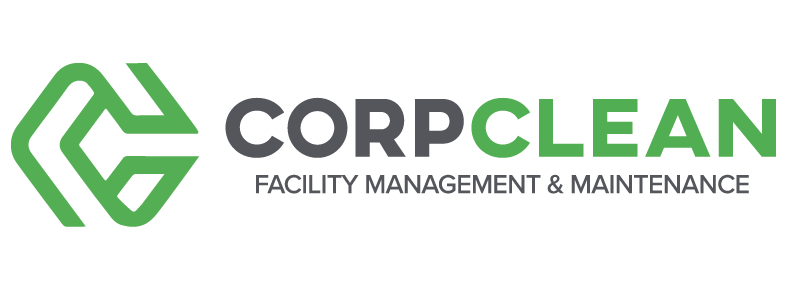Consider cost, effectiveness, and environmental impact when picking deicing methods.
Breathe Easier: Improving Indoor Air Quality
We tend to think of air pollution as an outdoor problem, but according to the EPA, Americans spend roughly 90 percent of their time indoors, where the concentrations of some pollutants are often 2-5 times higher than outdoor concentrations. The indoor air quality of your business not only refers to the air inside, but it also takes into account the air around your building. Whether it’s short- or long-term exposure, poor air quality can cause a variety of health issues, including respiratory diseases, heart disease, and cancers. Maintaining good indoor air quality is a crucial aspect of your business, as it promotes a healthy and productive environment for your employees, customers, and visitors.
Air quality concerns are becoming a worldwide problem, and it’s a hard problem to solve because there’s no easy answer. Air quality is based on many factors and is generated through common activities such as renovating, pest control, equipment maintenance, and daily interactions with the occupants in your building. Understanding the different types of pollutants is the first step in improving air quality.
Biological pollutants. Bacteria, viruses, fungi, pollen, animal and pest dander, viruses, mold, and other allergens.
Chemical pollutants. Harmful end products from sources such as cleaning products, tobacco smoke, emissions from equipment, and gases such as carbon monoxide.
Airborne pollutants. Particles not visible to the eye, such as microplastics, dust, and dirt; resulting from things such as aerosol cleaners, sanding, painting, office equipment, and smoking.
Your building’s HVAC system plays a huge part in maintaining your building’s air quality. It’s responsible for heating, cooling, and ventilating your space. This system also severely impacts how pollutants are distributed and removed.
Many of the above pollutants are significantly cut down through a building’s HVAC system, but without the proper maintenance, your HVAC system could be worsening air quality conditions. Dirty filters are unable to trap pollutants, while also recirculating contaminated air. Aim for changing your commercial HVAC filter roughly every three months.
While we can’t control the weather, we can monitor the effects and trends. The weather outside directly influences the exchange of airflow between the outside and inside your business. Planning based around seasons is an effective strategy for air quality. Spring brings high concentrations of pollen, summer months bring mold concerns due to high humidity, autumn brings dry air along with particles from burning leaves, and in winter, businesses tend to have the windows shut, decreasing outdoor to indoor air circulation.
For help addressing issues, consider installing smart sensors that detect air quality problems. Many of these products measure variables that contribute to poor air quality such as CO2, particle matter, and humidity. These sensors often provide quick and easily visible information regarding the quality of the air around them, allowing you to adjust accordingly.
The process of improving air quality takes time, but there are some quick ways you can get started off on the right foot.
- Houseplants. Certain houseplants naturally filter the air, while providing a bit of color around the office.
- Consider using green products. These products cut down on chemicals released into the air.
- Standalone air purifiers. Consider placing these in high-traffic areas such as conference rooms.
- Humidifiers and dehumidifiers. The EPA recommends levels around 30-50 percent.
When it comes to air quality, remember to be proactive rather than reactive. Not only is improving air quality better for health and wellness, but it could also aid in improving energy costs around your business.
Outdoor weather directly influences the air quality inside your building, so seasonal planning is an effective maintenance strategy.
Post Pandemic: Do We Still Need Commercial Cleaners?
People are looking for the same attention to cleanliness and safety they’ve recently come to expect.
Commercial cleaning crews used to work the night shift because office managers didn’t want them visible during busy work hours. That has changed since the COVID-19 pandemic. Now people expect to see cleaning in action. And they want to see deep and effective cleaning, not just a duster and vacuum cleaner.
Your employees and visitors desire the same dedication to cleanliness and sanitary routines they have implemented at home over the past couple of years. And that’s not going to change.
Everyone wants to feel safe in their workplace, so companies must demonstrate their commitment to better cleaning systems. Although many are still reeling from the adverse effects of the recent pandemic, some good practices have evolved. Maintaining higher standards for cleanliness simply makes good sense.
There are many types of germs and bacteria lurking on all surfaces. And what company doesn’t want happier, healthier, and more productive employees with fewer sick days and a more presentable work environment? We have all learned the lessons of preventative cleaning to stave off future potential germs. It has become common practice to carry a bottle of hand sanitizer and keep disinfectant wipes handy.
According to Essity, a leading global hygiene and health company, the results of their Return to Workplace survey, conducted by The Harris Poll, show some impressive statistics.
The overwhelming majority of American adults still believe increased cleaning and sanitizing are essential in public places, such as doctors’ offices/healthcare facilities (90 percent), restaurants (89 percent), hotels (88 percent), theaters (88 percent), fitness centers (87 percent), retail stores (86 percent), and entertainment facilities (stadiums/museums) (86 percent). The survey also indicates that workers have high expectations for office hygiene and cleanliness to feel comfortable, and those attitudes aren’t going away.
Contrary to what you might think, people are not all staying at home. Many are returning to the office, but that physical space is changing. Employers are seeking new ways to engage their staff and make them want to come back to the office. Gone are the days of closed-in cubicles. The latest trend is hoteling, where wide-open spaces are being created to allow for social distancing while encouraging collaboration. Converting lobby areas and conference rooms to community work areas provide new ways for employees to interact more safely and engage. Some companies are adding upgraded perks and concierge-like services to employees to promote camaraderie and make a more fun atmosphere.
Those new work areas create more challenges for the cleaning teams as the spaces expand and even move outdoors. Finding a team of experts to help your company navigate the critical elements of your overall facility maintenance can be vital to getting workers back and ensuring they feel confident enough to stay.
Another benefit of using a contracted commercial service for cleaning is one-stop shopping. Having all your cleaning and maintenance services integrated into one service provider means fewer people entering your facility, less exposure, and streamlined performance. Product availability has been an ongoing problem during the pandemic, and inventory control continues to be negatively impacted by a slow-moving supply chain. Let CorpClean monitor necessary products to ensure you have what you need, when you need it. We utilize our own equipment, which keeps costs down for our clients. We can clean daily, twice a week, or weekly—you determine the frequency based on your needs.
At CorpClean, we can tailor our services to meet and exceed your specific commercial cleaning needs. Give us a call or send us a message.
Everyone wants to feel safe in their workplace, and that’s not going to change.
Would Your Business Benefit from Integrated Facilities Management?
Busy business leaders need to work smarter, not harder. Integrated facilities management (IFM) can save you time and money.
In many organizations, facility management responsibilities fall on one or more of the company’s leaders. And more often than not, those duties are added to somebody’s primary role, such as generating sales, maintaining the books, or managing operations. As a result, keeping a building safe, clean, and operational becomes a reactionary function rather than an organized business strategy.
Ideally, facility management would be a coordinated effort overseen by someone dedicated to the task. Then, routine and preventative maintenance could be scheduled in advance, contracts reviewed annually, and costs contained. And leaders could focus on running their core businesses.
A professional integrated facility management (IFM) program is a practical solution for consolidating a company’s maintenance tasks while freeing up valuable resources. IFM can increase efficiency, generate cost savings, and leverage industry technology and knowledge—and your business can reap the benefits.
What is IFM?
Integrated facilities management involves centralizing building cleaning and maintenance tasks under a single point of contact. An outsourced provider covers all maintenance services, such as recurring janitorial services, HVAC servicing, lightbulb and consumables replacement, facility exterior and grounds upkeep, carpet cleaning, hard-floor care, and more.
Implementing IFM could mean trading multiple vendor contracts for a single provider, depending on your current facilities management arrangement. Compared to managing countless tasks individually, IFM results in more effective building maintenance management, quicker responses to service requests, and less employee downtime.
Integrated facilities management is not simply a matter of bundling maintenance services. Whereas bundling involves using vendors for multiple maintenance tasks, IFM applies to facility management’s higher-level strategic and tactical aspects. Unburdened by the day-to-day management of maintenance duties, managers have time to take a more strategic approach to facilities management.
Benefits of IFM
Consolidating facility management efforts under one provider offers numerous advantages. For one, your business will reduce the number of vendors it uses and, thus, the annual service contracts it needs to negotiate.
The single-source approach also means fewer monthly invoices to process and vendor relationships to manage. And it means one touchpoint for all your customer service needs.
Second, using a single vendor will lower your overall maintenance expenses. Because facility management is the only thing they do, IFM providers develop operational efficiencies and economies of scale. They can also leverage their size and purchasing power to obtain discounts and pass those savings on to you. In most cases, your company will pay less with one IFM provider than if you acquired each maintenance service from a separate source.
Third, employing an integrated solution is a more straightforward approach to facility management. It helps eliminate unintentional duplication and redundancy of maintenance efforts. Companies can streamline decision-making, ensure quality, and pinpoint accountability using a singular provider. Service consolidation provides a more transparent view of your organization’s facility management expenses, as inefficiency and unnecessary spending become easier to identify.
Finally, IFM ensures your facilities management is scalable as your business expands. In-house solutions designed to handle today’s needs will eventually reach their limits as the company grows and adds locations. Integrated facilities management is a quick and cost-effective way to scale facility management with your business.
Your facilities are among your company’s most costly assets, and managing them is expensive. Therefore, facility management must align with the organization’s overall business objectives.
IFM frees business leaders from daily facility management burdens and allows them to focus on other goals. Properly implemented, integrated facilities management will improve communication, streamline internal operations, and enhance organizational productivity and wellness.
In many organizations, facility management duties are an afterthought—something added to someone’s primary role. When that happens, keeping a building safe, clean, and operational distracts from core business activities.

